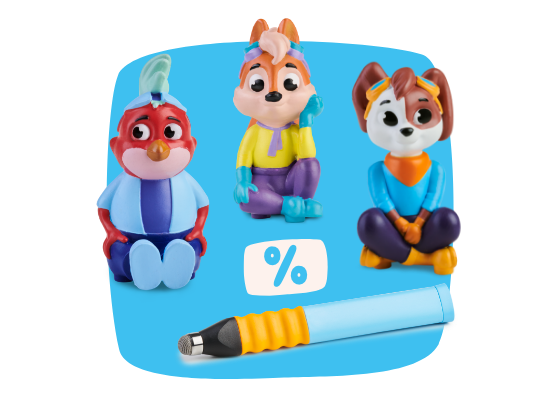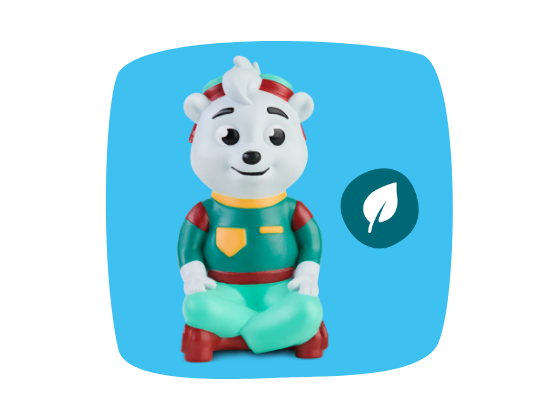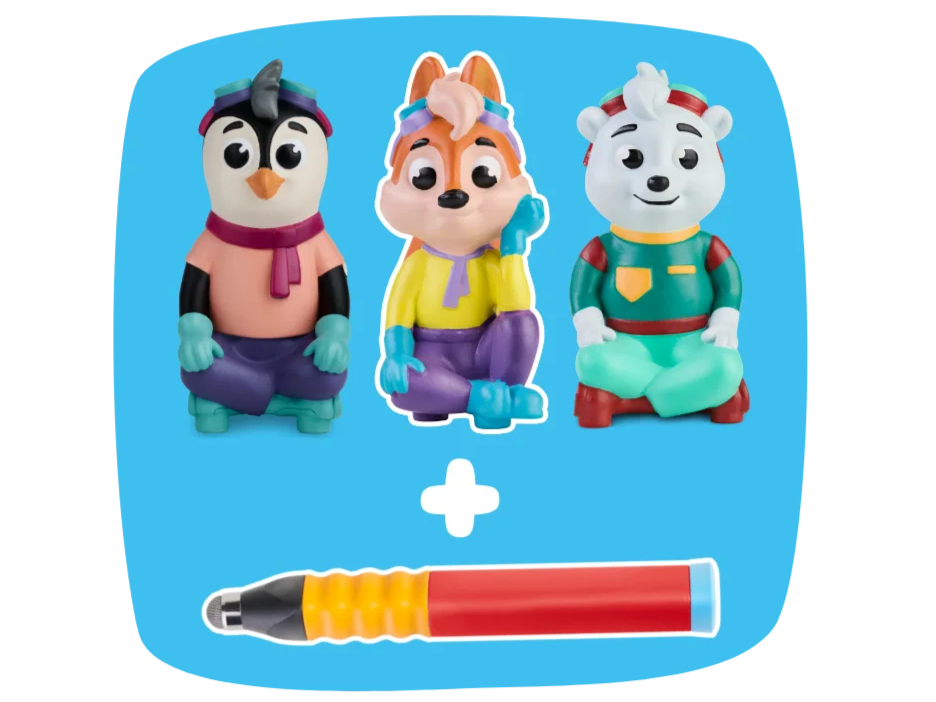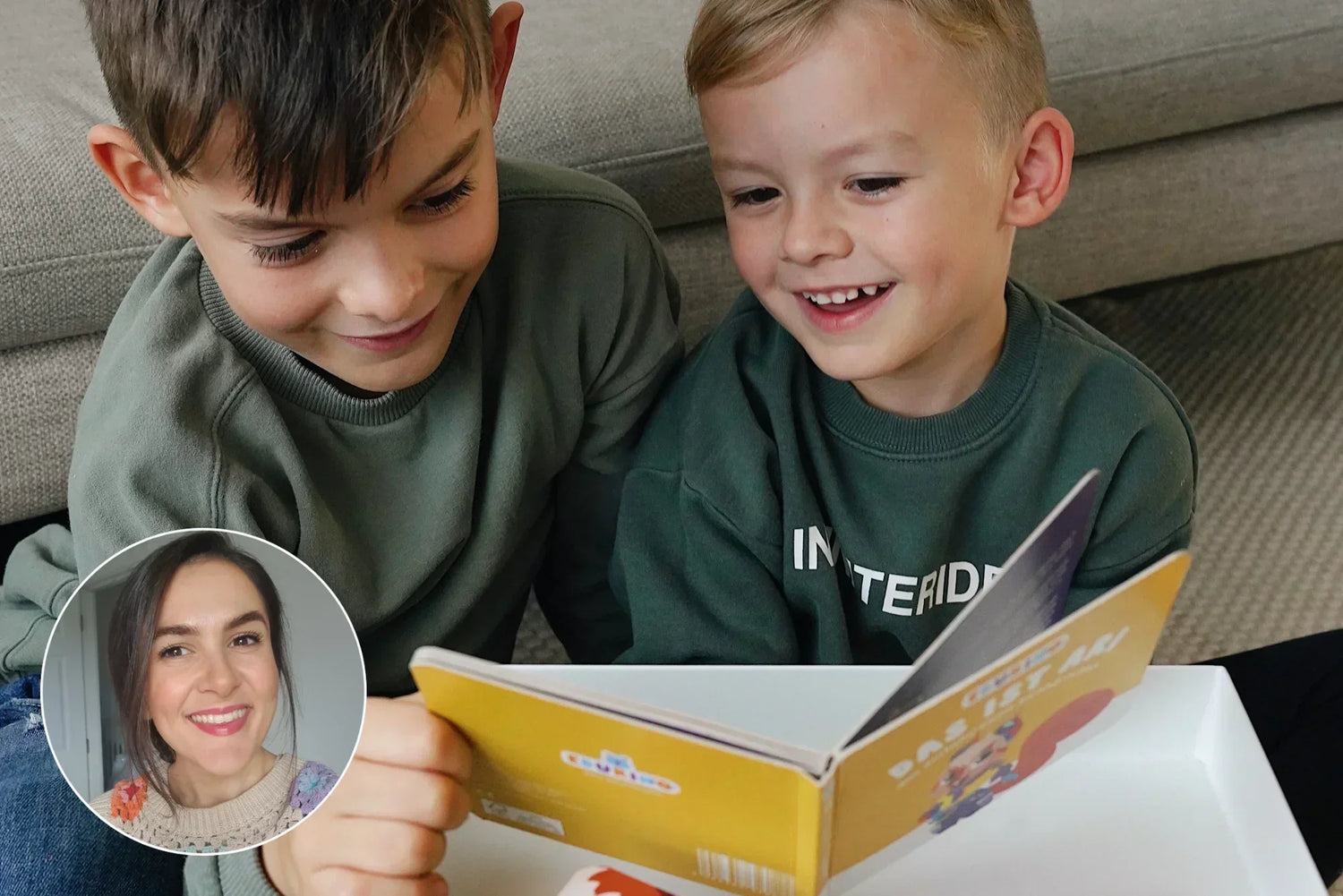When I was 12, I was an absolute bookworm. I remember staying up all night reading "The Prisoner of Azkaban"—in the bathroom because my sister had banned me from our room. I just couldn't stop until I finished the book in one day. I loved going to the school library every week and picking out something new. There was always an exciting book on my bedside table.
Unfortunately, things are different for many children today. Studies show that the enjoyment and frequency of reading often decline with age. According to a 2023 Scholastic study, 41% of 12-year-olds read less than one book per week, and 53% of 12- to 17-year-olds say they don't enjoy reading at all.
As a teacher and mother, I firmly believe that children who say they don't like reading simply haven't found the right book yet.
In addition, a special analysis by the Institute for School Development Research (2022) at TU Dortmund University shows that children's reading behavior is highly influenced by the family environment - especially by the availability of books and parental support.
So here are a few tips on how to inspire a love of reading in your family – even among the biggest reluctant readers!
Why is reading so important for children?
Books open doors to adventures and cultures we could never otherwise imagine. They promote:
-
empathy
-
Emotional Intelligence
-
A larger vocabulary – a key factor for school success
-
Creative problem solving
4 ways your child discovers the love of reading
1. Let your child take the wheel 🚗📚
Yes, sometimes that means plowing through "100 Gross Facts About Lizards," but hey—if your child enjoys reading that, that's the first step. The goal is for them to enjoy reading.
Whether it's comics, short stories, or books they already know, give your child the freedom to decide what they want to read. This is key to establishing reading as a lifelong passion.
And honestly, even we adults prefer light entertainment to a classic like "Ulysses," right? 😉
2. Get support if you feel your child is having difficulties
If your child really hates reading and you're both at the brink of despair, it might be a good idea to seek support.
Your child's teacher is a good first point of contact. With their experience working with young readers, they can offer valuable tips or identify potential challenges early on. Maintain open communication between school and home—together you can pave the way to reading enjoyment.
3. Use technology – as a complement, not a replacement
Technology will never replace books—they're far too great for that. But it can help.
The foundation for reading is mastering phonics. As your child gains confidence in this area, their self-confidence also grows. With Mika's "First Reading and Writing," your child can discover rhymes, practice syllables, and write their first letters—all playfully and at a pace that's right for them.
If your child is ready to delve deeper into the world of letters, Mika's "ABC: The Letters" offers the opportunity to recognize uppercase and lowercase letters, discover sounds in words, and learn correct spelling in a playful way.
Audiobooks are also a great companion: children can listen to an audiobook while reading a book – this fills in gaps in their knowledge and increases their interest in reading.
4. Love the libraries ❤️📚
If you have a library nearby, take advantage of this great resource. Libraries offer so much more than just books!
-
Reading groups, competitions and courses
-
Access to audiobooks and digital resources
-
Books for every passion: cookbooks, craft guides, novels, comics...
The best part? Your kids can borrow stacks of books, and you don't have to store them all at home. Win-win!
With these tips, you can make reading an exciting and enjoyable experience for your family. And who knows, maybe your child will soon be just as excited to sit on the couch with a book as you were back then! 😊

Brigid is a primary school teacher with over ten years of experience in public and private schools. She specializes in early childhood education and working with neurodiverse children.








